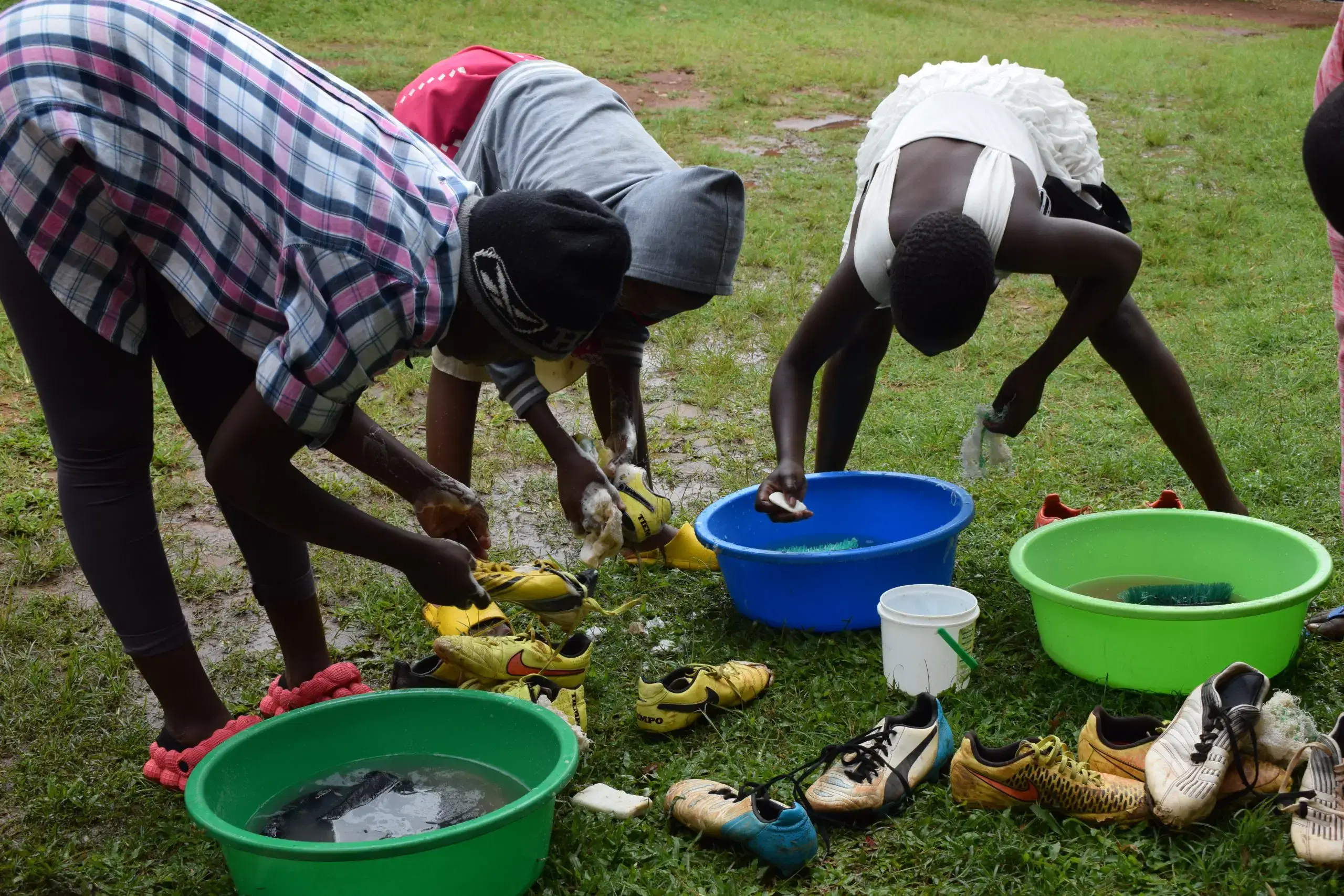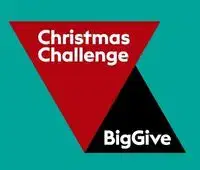Uganda, Kampala
2024 – 2027
Local Partner: Hope for Children &
Chance for Childhood
Why is the project needed?
Namuwongo is the second-largest informal settlement in Uganda’s capital, Kampala, home to over 15,000 residents. The majority of the population lives in extreme poverty, with most families earning less than £1 a day. High poverty rates, inadequate access to services, and precarious living conditions place girls at significant risk of teenage pregnancy, HIV infection, and school dropout. By providing these girls with football training, life skills education, and a safe space to learn, the Girls United vs Teenage Pregnancy project helps reduce these risks and gives the girls the tools to break the cycle of poverty.

About the Project
The Girls United project uses the power of football to create positive change in the lives of 195 girls aged 9-17 living in the Namuwongo settlement, Kampala, Uganda. Through football training, life skills education, and mentoring, the programme aims to reduce teenage pregnancy and HIV infection, while promoting school retention and building self-esteem. The programme will run over 36 months and is implemented by Hope for Children, a local women-led NGO with a strong history of successful community-based projects.
Building on the success of Hope for Children’s original Girls United project, which has been providing football opportunities since 2018, this intervention provides 60 football training sessions per year, delivered by professional coaches. The girls also benefit from nutritious meals, mentoring by social workers and counsellors, and life skills sessions focusing on sexual and reproductive health and rights (SRHR), communication, and nutrition.
Goals and Objectives
The Girls United vs Teenage Pregnancy project aims to achieve the following objectives:
- 25 girls who demonstrate leadership potential will be trained as volunteers to mentor younger girls, promoting peer support and leadership within the programme.
- Reduce Teenage Pregnancy and HIV Infection:
Zero teenage pregnancies among project participants during the course of the programme. 80% of girls will engage in less risky behaviour, including reduced unprotected sex and substance abuse. 80% of girls will demonstrate improved knowledge and awareness of sexual and reproductive health and rights (SRHR). - Increase School Retention:
School retention will improve by 25% due to the additional educational support, mentoring, and advocacy provided through the programme. - Promote Well-Being and Self-Esteem Through Sport:
Weekly football sessions (60 per year), delivered by two qualified coaches, will help build confidence and life skills. During the holidays, sessions will be held twice weekly at Kisugu Church Primary School. - Develop Leadership Skills:
25 girls who demonstrate leadership potential will be trained as volunteers to mentor younger girls, promoting peer support and leadership within the programme.
How will we do it
The programme focuses on creating a safe and supportive environment for the girls through sport and education. The key components include:
- Football Training: 60 football sessions per year are provided by professional coaches, with additional sessions during school holidays. These sessions promote teamwork, self-discipline, and physical health.
- Life Skills Sessions: After each football session, girls participate in life skills workshops focused on SRHR, empowerment, communication, nutrition, and more. Intensive monthly sessions are led by specialist speakers.
- Mentoring and Support: Social workers and counsellors provide the girls with mentoring and support, helping them navigate challenges and make informed life choices.
- Nutrition: After every life skills session, girls receive a nutritious hot meal—often the only meal they will have that day.
- School Support: Girls are encouraged to stay in school and provided with tutoring or homework assistance from the Hope for Children team to support their education.
- Leadership Development: 25 girls who demonstrate leadership potential will be trained as volunteers and mentors, learning important skills like timekeeping and responsibility. These girls will also receive leadership training within the life skills modules.

Our impact so far
65 girls have been supported by the programme in 2024-25.
Zero teenage pregnancies have been reported among participants.
80% of girls have engaged in less risky behaviour, including reduced unprotected sex and substance abuse.
Increased SRHR Awareness: At least 80% of participants demonstrated improved knowledge and awareness of sexual and reproductive health and rights.
25% improvement in school retention due to the programme’s support


